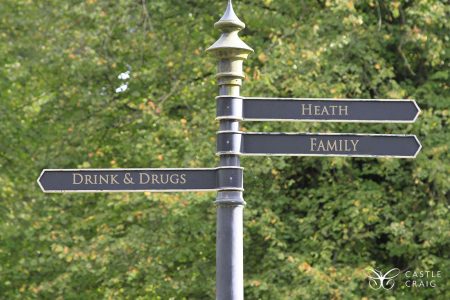When two disorders collide with each other, that is called a co-occurring disorder or a dual diagnosis. When this happens, it is important to understand the symptoms of each co-occurring disorder and their relationship with each other to come up with a plan for treatment. For example, if someone has both depression and an eating disorder, an eating disorder can be treated without taking into consideration that depression was the cause of not eating- leaving that one to go untreated. Here are some ways that eating disorders can be mixed up with a lot of mental illnesses as well as substance misuse.
Half of the population of those who have eating disorders end up misusing alcohol or drugs- five times greater than those who do not. For example, for those with both an eating disorder and addiction, alcohol can make regurgitation easier to accomplish. Throwing up after drinking is considered normal so no one would know that they are really covering up their eating disorder. Drugs can help with the pain that an eating disorder can bring such as meth reducing feeling hungry and marijuana as a relaxer. Substance misuse can cause appetite suppression which can lead to a huge weight loss that triggers an onset eating disorder. When this happens, it is important to find a specialist that is trained in both of these disorders so that neither one of them goes untreated.
People with anxiety can develop an eating disorder in order to have some control in their life. Choosing to withdraw from food and exercise can give be their way of taking some control back into their lives, relieving the symptoms that come from anxiety. This is how anorexia nervosa and bulimia nervosa can come into place.
Those with Obsessive Compulsive Disorder think obsessively about food, calories, and food rituals like cutting food symmetrically or hiding food. Foods can be chosen based on color, shape, and weight to obtain perfection.
Self-injury patients can hurt themselves with their eating disorder by causing themselves to vomit or exercise too much to bring pain to themselves. Those with PTSD can have an eating disorder to cope with their painful experiences and emotions. Like those with anxiety, PTSD patients feel they can gain control back this way.
These co-occurring disorders can all be treated with methods such as cognitive behavioral therapy, support groups, medication, and psychotherapy. Remember that every disorder is 100% treatable so never lose faith in yourself and seek help.
Castle Craig has served as a landmark of successful addiction and mental health treatment for over 25 years, providing long-term abstinence to over 10,000 patients. Our residential treatment programmes leave patients in optimal health of mind, body, and spirit. Call our 24 hour free confidential phone-line for more information: 01721 546 263. From outside the UK please call: +44 808 271 7500 (normal charges apply)


